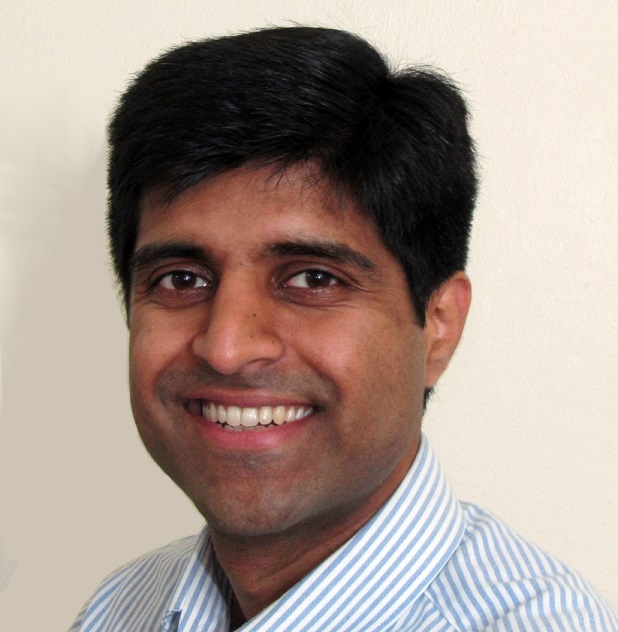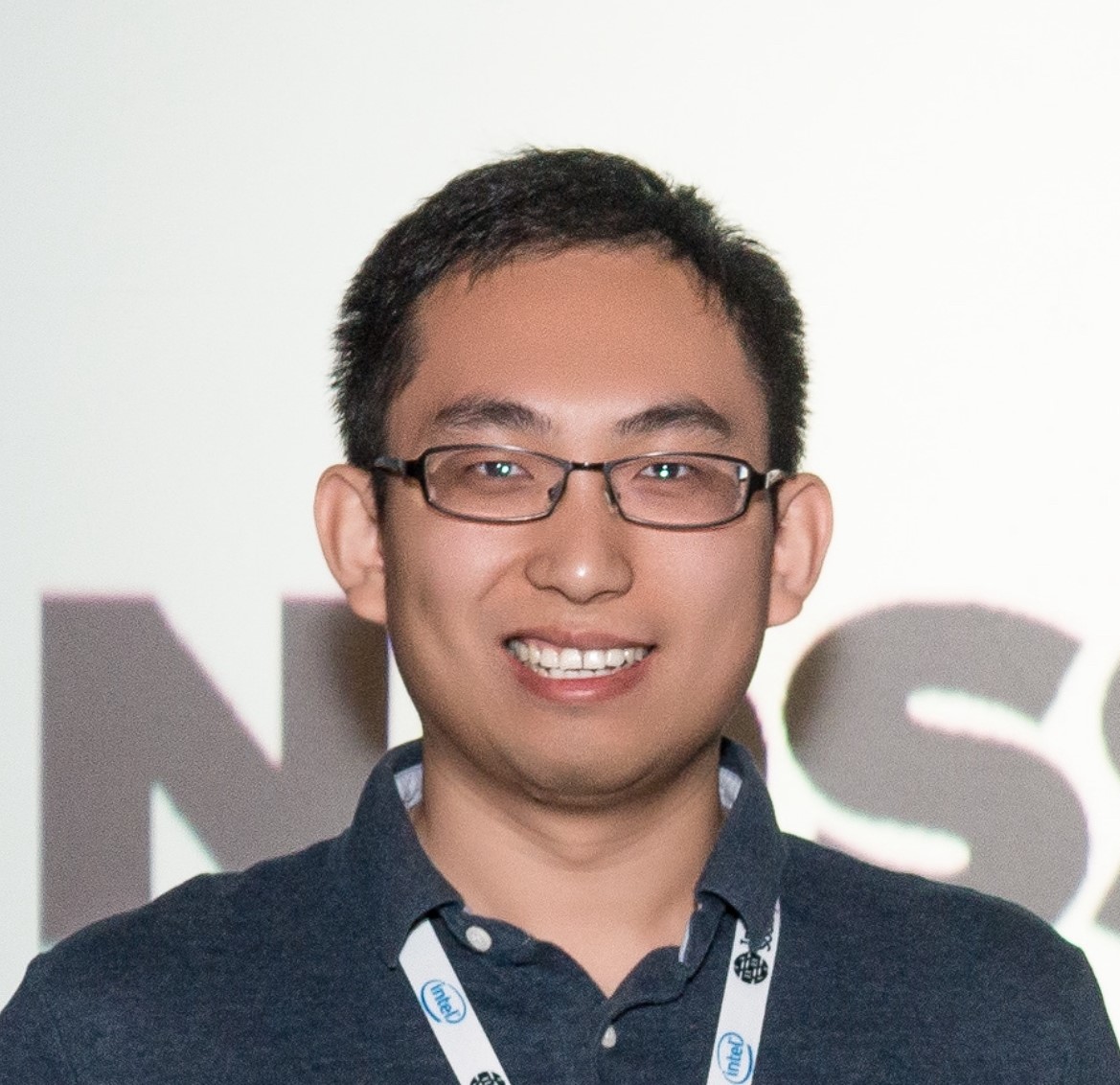Workshop Program - Monday, 27 June 2022
| 8:30 ET |
Welcome to DSN-DSML 2022
Saurabh Jha, IBM Research
|
| |
Session 1: Keynote Talk
|
08:45 ET
09:45 ET
|
Safety and Resilience of Autonomous Vehicles
Siva Kumar Sastry
Hari, NVIDIA
Q&A
|
| 10:00 ET |
Coffee Break |
| |
Session 2: Robustness of Control Systems
Session Chair: Saurabh Jha
|
10:30 ET
10:50 ET
11:10 ET
11:30 ET
|
Autonomous Attack Mitigation for Industrial Control Systems [Teaser video]
John Mern, Kyle Hatch, Ryan Silva, Cameron Hickert, Tamim Sookoor, Mykel J. Kochenderfer
Robustness Testing of Data and Knowledge Driven Anomaly Detection in Cyber-Physical Systems [Teaser video]
Xugui Zhou, Maxfield Kouzel, Homa Alemzadeh
Talk: Towards Building Resilient Ensembles against Training Data Faults
Abraham Chan, Arpan Gujarati, Karthik Pattabiraman, Sathish Gopalakrishnan
Talk: General Probability in Coq [Teaser video]
Avraham Shinnar, Barry Trager
|
| 12:00 ET |
Lunch Break |
| |
Session 3: Keynote Talk
|
13:30 ET
14:30 ET
|
On the Semantic AI Security in CPS: The Case of Autonomous Driving [slides]
Alfred Chen,
UC Irvine
Q&A
|
| 14:45 ET |
Discussion and Closing |
| |
Virtual Session: ML Systems
|
Virtual
Virtual
Virtual
|
On the Impact of Non-IID data on the Performance and Fairness of DP Federated Learning [Teaser video]
Saba Amiri, Adam Belloum, Eric Nalisnick, Sander Klous, Leon Gommans
Federated Learning with Anomaly Client Detection and Decentralized Parameter Aggregation
Shu Liu, Yanlei Shang
A Novel Robust Framework for Adaptive Selection of Filter Ensembles to Detect Adversarial Inputs
Arunava Roy, Dipankar Dasgupta
|
|
|

Safety and Resilience of Autonomous Vehicles
Siva Kumar Sastry Hari, NVIDIA
Abstract:
Autonomous Vehicles are being increasingly integrated into our lives thanks to rapid
advancements in AI and computing technologies.
These systems use complex algorithms to perceive the surroundings and plan an efficient
trajectory in real-time.
Safety remains an important consideration for the autonomous vehicles.
Before a large-scale deployment, the system vendors are expected to perform a thorough
safety evaluation of the autonomous system and demonstrate
how the system mitigates unexpected events.
In this talk, I will present a broad overview of the area, identify outstanding research
challenges, and summarize a
few motivating example solutions being developed to address the challenges.
Speaker Bio: Siva Hari is a Senior Research Scientist in the Architecture
Research Group at NVIDIA. His research interests are in the fields of computer
architecture, system design, and artificial intelligence, with focus on resilience,
safety, and efficiency of Autonomous and High-Performance Computing Systems. Four of his
papers were recognized as IEEE Micro's Top Picks in 2022 and 2013, Best Research Paper
Award at ISSRE 2020, and Best Paper Award Runner-up at DSN 2018, respectively. He
received the David J. Kuck Outstanding Ph.D. Thesis Award by the CS Department at the
University of Illinois at Urbana-Champaign, where he obtained his Ph.D. He obtained his
bachelor's degree in Computer Science and Engineering from the Indian Institute of
Technology (IIT) Madras.

On the Semantic AI Security in CPS: The Case of Autonomous Driving
Alfred Chen, UC Irvine
Abstract: Recent years have witnessed a global phenomenon in the real-world
development, testing, deployment, and commercialization of AI-enabled Cyber-Physical
Systems (CPSs) such as autonomous driving cars, drones, industrial and home robots.
These systems are rapidly revolutionizing a wide range of industries today, from
transportation, retail, and logistics (e.g., robo-taxi, autonomous truck, delivery
drones/robots), to domotics, manufacturing, construction, and healthcare. In such
systems, the AI stacks are in charge of highly safety- and mission-critical
decision-making processes such as obstacle avoidance and lane-keeping, which makes their
security more critical than ever. Meanwhile, since these AI algorithms are only
components of the entire CPS system enclosing them, their security issues are only
meaningful when studied with direct integration of the semantic CPS problem context,
which forms what we call the “semantic AI security” problem space and introduces various
new AI security research challenges.
In this talk, I will focus on our recent efforts on the semantic AI security in one of
the most safety-critical and fastest-growing AI-enabled CPS today, Autonomous Driving
(AD) systems. Specifically, we performed the first security analysis on a wide range of
critical AI components in industry-grade AD systems such as 3D perception, sensor
fusion, lane detection, localization, prediction, and planning, and in this talk I will
describe our key findings and also how we address the corresponding semantic AI security
research challenges. I will conclude with a recent systemization of knowledge (SoK) we
performed for this growing research space, with a specific emphasis on the most critical
scientific gap we observed and our solution proposal.
Speaker Bio: Alfred Chen is an Assistant Professor of Computer Science at
University of California, Irvine. His research interest spans AI security, systems
security, and network security. His most recent research focuses are AI security in
autonomous driving and intelligent transportation. His works have high impacts in both
academic and industry with 30+ research papers in top-tier venues across security,
mobile systems, transportation, software engineering, and machine learning; a nationwide
USDHS US-CERT alert, multiple CVEs; 50+ news coverage by major media such as Forbes,
Fortune, and BBC; and vulnerability report acknowledgments from USDOT, Apple, Microsoft,
etc. Recently, his research triggered 30+ autonomous driving companies and the V2X
standardization workgroup to start security vulnerability investigations; some confirmed
to work on fixes. He co-founded the AutoSec workshop (co-located with NDSS), and
co-created DEF CON's first AutoDriving-themed hacking competition. He received various
awards such as NSF CAREER Award, ProQuest Distinguished Dissertation Award, and UCI
Chancellor's Award for mentoring. Chen received Ph.D. from University of Michigan in
2018.
|
|

